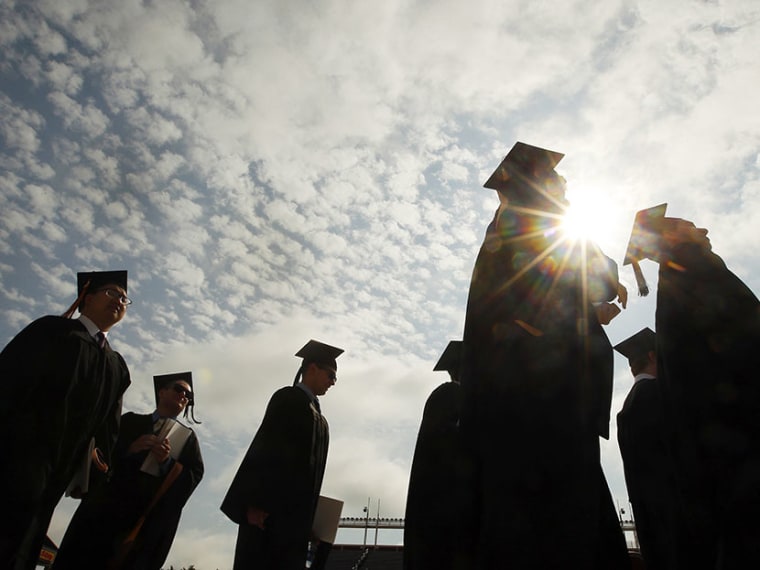Last week, a lot of students got screwed. And on Wednesday, it happened again.
The Senate voted down a proposal that would have reversed a hike on subsidized Stafford loan rates, bringing them down from 6.8% to 3.4%. The hikes were triggered last week after Congress failed to compromise on a plan by its July 1 deadline. Proposed by Senate Majority Leader Harry Reid, the plan would have been a short-term fix that even if passed in the Senate, had little chance of survival in the GOP-controlled House.
Part of the problem is an over-saturation of plans, all with small but significant differences. Leading up to the July 1 deadline for compromise, msnbc.com's Suzy Khimm reported:
"President Obama, House Republicans, and a group of Senate Republicans have all endorsed plans that would peg Stafford student loans to the 10-year Treasury rate, plus an additional fixed amount ranging from 0.93 percentage points (Obama) to 3 percentage points (Senate GOP group)."
While at the same time:
"A group of Democratic senators led by Sens. Jack Reed of Rhode Island and Dick Durbin of Illinois endorsed a plan that would peg the loans to the three-month Treasury rate, plus an estimated 2 percentage points. All of these proposals would reform the system from a fixed rate determined by Congress to a variable one that would depend on the market."
But while the inter-plan battle continues, the collateral damage falls on students. Congress' Joint Economic Committee estimates that continued inaction on lowering the rates could mean an extra $2,600 for the average student this fall.
Matthew Segal, founder of OurTime.org, voiced his frustration for fellow millennials impacted by Congress’ inaction. He told msnbc that while student debt and costs of education were larger issues during the 2012 election—when Congress first faced fixing the loan rates exactly one year ago—without a presidential election cycle to drive the issue, young people now “are not needed, they are not thought about.”
"I have no idea what's happening in our country," Segal said.
Segal has previously stated that the larger argument around student loans is the high cost of education to begin with. “Legislators should be reigning in on college costs,” he said. Instead, costs “just keep skyrocketing.”
